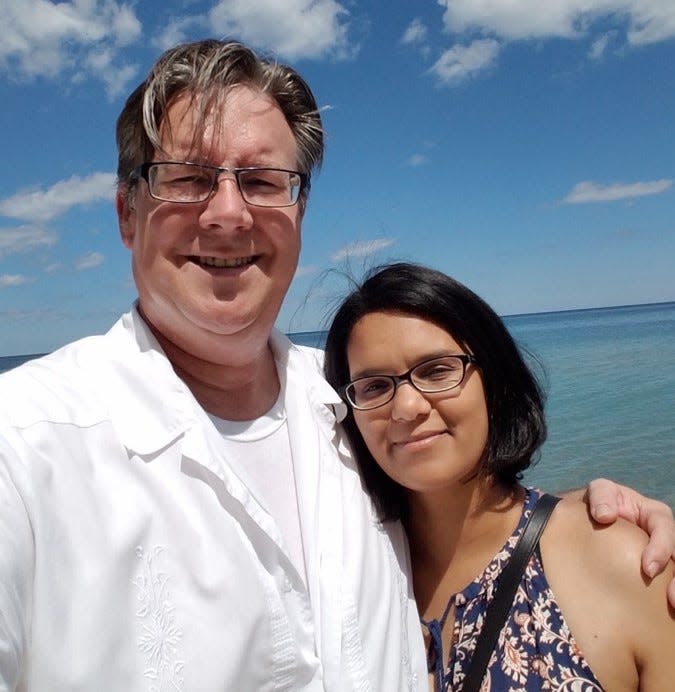Prosecutors raise stakes in lawyer's shooting trial, amend charge to intentional homicide

A week before trial, prosecutors have upped the charges in the shooting of a Milwaukee lawyer to first-degree intentional homicide, which could be a tactical move to counter a self-defense claim.
Theodore Edgecomb, 31, had been charged with first-degree reckless homicide in the Sept. 22, 2020, shooting of Jason Cleereman, 54, an immigration attorney and advocate.
Moments earlier, Edgecomb, who was riding a bicycle, and Cleereman, a passenger in a car driven by his wife, had exchanged words on Brady Street and Edgecomb punched Cleereman through the open window. The couple then followed Edgecomb as he rode up on the Holton St. bridge, where Cleereman got out and confronted Edgecomb.
On Monday, Edgecomb, who has raised self-defense, entered a not guilty plea to the amended information. If convicted on the new charge, Edgecomb would face mandatory life in prison.

But it also would allow prosecutors to perhaps win a conviction for second-degree intentional homicide. If jurors believed Edgecomb honestly feared for his life — but that his fear was unreasonable — he would be guilty of the lesser charge, and avoid a life sentence.
Self-defense offers no such mitigation from reckless homicide. If prosecutors couldn't prove Edgecomb's resort to deadly force was unreasonable, jurors could only acquit him.
RELATED: Kyle Rittenhouse will argue self defense, but experts say proving it to a jury isn't easy
The trial had been set to start Jan. 3 but was postponed that day after Judge David Borowski tested positive for COVID-19. It is now scheduled to begin with jury selection Tuesday, Jan. 18.
Edgecomb's lawyers had objected to the delay, citing his speedy trial demand, and then sought his release ahead of the new trial date. Borowski declined to modify Edgecomb's $250,000 bail.
On Monday, the judge also ruled he would allow prosecutors to refer to Cleereman as a victim. The defense asked that Borowski limit use of the word, which they consider prejudicial when self-defense is at issue. "This is not the Rittenhouse case," Borowski said.
Kyle Rittenhouse said he acted in self-defense when he fatally shot two protesters and wounded a third during protests in Kenosha in August 2020. The judge at his trial earned national attention when he banned prosecutors from referring to the men who were shot as victims. A jury acquitted Rittenhouse, 18, of all charges.
Edgecomb's supporters have said if self-defense applied for Rittenhouse, it should also clear Edgecomb. CourtTV, which streamed the Rittenhouse trial live, had planned to cover Edgecomb's trial as well.
One big difference is that while Rittenhouse surrendered within hours, Edgecomb fled Wisconsin and was arrested about six months later in Kentucky after using a fake name. Prosecutors argue that demonstrates "consciousness of guilt."
Edgecomb, who has no prior convictions, was on bail at the time in two domestic violence cases and was not supposed to have gun. His lawyers say that's why he left the area and that bringing it up at trial would only be prejudicial since he admits he shot Cleereman.
Contact Bruce Vielmetti at (414) 224-2187 or bvielmetti@jrn.com. Follow him on Twitter at @ProofHearsay.
Our subscribers make this reporting possible. Please consider supporting local journalism by subscribing to the Journal Sentinel at jsonline.com/deal.
DOWNLOAD THE APP: Get the latest news, sports and more
This article originally appeared on Milwaukee Journal Sentinel: Man claiming self-defense in lawyer's death now facing intentional homicide

